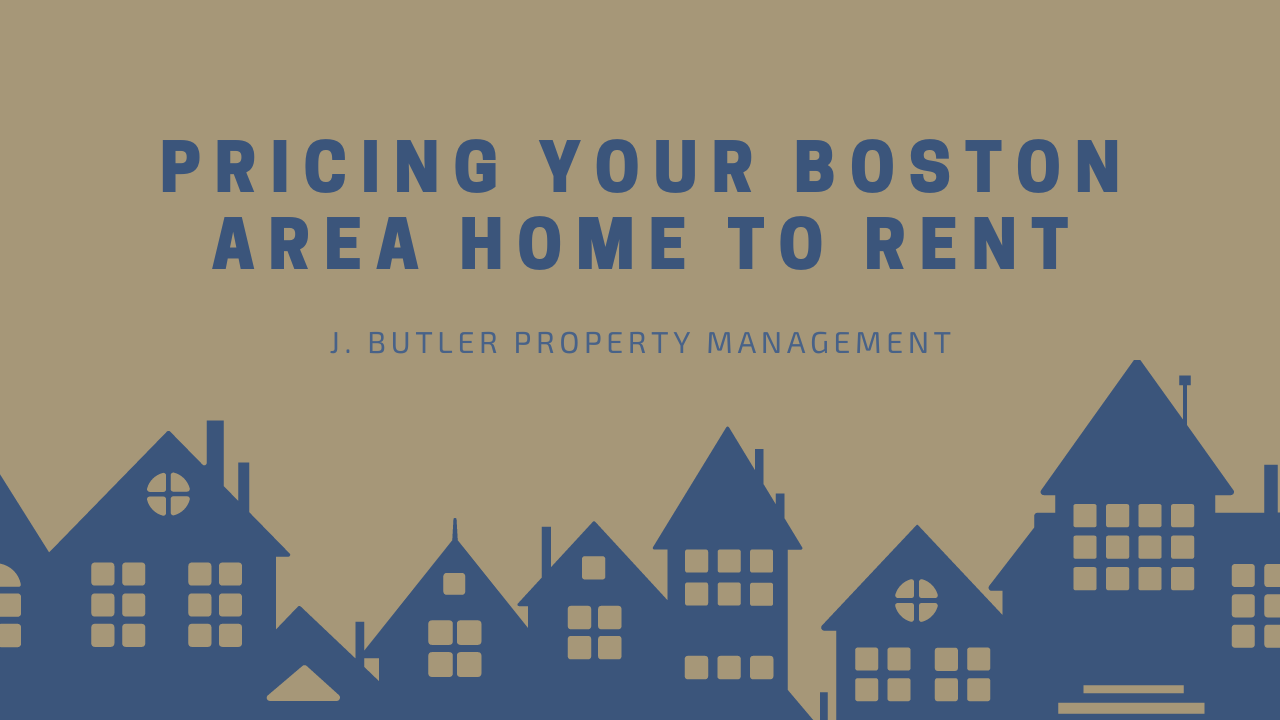
Pricing Your Boston Area Home to Rent
February 25, 2024
Pricing Your Boston Area Home to Rent
Are you thinking of renting out your Boston-area home? It’s a smart decision in a city with high demand and competitive rental rates. However, setting the right price can be tricky.
Boston’s real estate market is dynamic and influenced by various factors such as location, amenities, and market demand. As a homeowner, understanding these factors and how they impact pricing can help you maximize your rental income while attracting quality tenants.
Here are some tips to help you figure out the right rental pricing for your property in the Boston area:
Research Market Trends
Start by delving into recent rental listings and transactions in your neighborhood or the broader Boston area. Look for properties similar to yours in size, amenities, and location. Pay close attention to the rent prices they command and how long they stay on the market.
Analyzing this data will provide insights into the current state of the market, including trends in rental rates, occupancy levels, and the types of properties in demand. Understanding supply and demand dynamics is essential for setting the right rental price. Consider population trends, demographic shifts, and economic indicators influencing housing demand.
In Boston, factors like job growth, migration patterns, and the presence of universities can significantly impact rental demand. Additionally, consider any seasonal variations in demand, such as increased rental activity during the summer months or fluctuations related to academic calendars.

You can also leverage online rental platforms, real estate databases, and local market reports to gather comprehensive market data. These sources provide valuable insights into rental trends, average rent prices, vacancy rates, and neighborhood-specific information.
By analyzing this data, you can understand where your property stands within the market and make informed decisions about pricing strategy.
Assess Property Features and Amenities
Evaluate your property’s specific features and amenities that contribute to its appeal and desirability. Consider aspects such as:
- Size and Layout: Determine the square footage and layout of the property, including the number of bedrooms, bathrooms, and any additional living spaces.
- Condition: Assess the overall condition of the property, including the age of appliances, fixtures, and finishes. Properties that have been recently renovated or well-maintained may command higher rental prices.
- Special Features: Identify any unique selling points or special features that set your property apart from others in the market. This could include amenities like parking, outdoor space, views, or access to shared facilities such as a gym or pool.
Consider the Neighborhood
In addition to evaluating the property, consider the characteristics of the neighborhood in which it’s located. The neighborhood can significantly influence the rental value of your property. Factors to consider include:
- Location: Assess the property’s proximity to essential amenities such as public transportation, schools, parks, grocery stores, and entertainment options.

- Safety and Security: Evaluate the neighborhood’s safety by researching crime rates, neighborhood watch programs, and the overall perception of safety among residents.
- Desirability: Consider the overall desirability and reputation of the neighborhood. Factors such as nearby attractions, cultural amenities, and community events can enhance the appeal of your property to prospective tenants.
Conduct Comparative Analysis
Once you’ve assessed your property’s features and evaluated the neighborhood, compare it to similar rental properties. Look for properties similar in size, condition, and location to yours. Pay attention to comparable rental listings and note their rental prices, features, and amenities.
Consider current market trends, such as rising or falling rental prices, vacancy rates, and demand-supply dynamics, that may impact the rental value of your property.
By comprehensively evaluating your property and considering its features, condition, and neighborhood context, you can set a competitive rental price that reflects its actual value within the market.
Monitor and Adjust
Your job isn’t done once you’ve set the initial rent price for your Boston property. It’s crucial to continuously monitor the market and tenant response to ensure your rental property remains competitive and maximizes its earning potential.
Keep a record of inquiries and showing activity for your rental property. Note the number of inquiries received, appointments scheduled, and any feedback provided by prospective tenants.

Pay attention to recurring themes or concerns tenants raise, as these insights can help you identify areas for improvement.
Compare the actual rental offers you receive to the initial rent price you set. If you’re consistently receiving offers below your asking price or need help attracting tenants, it may be a sign that your property is overpriced or that adjustments are needed.
Last Words
Pricing your Boston property for rent requires careful consideration of various factors, including market trends, property features, and tenant demand. By adopting a strategic approach to setting the rent price and continuously monitoring market dynamics, you can optimize your property’s rental income potential while attracting quality tenants.
For expert assistance in managing your Boston rental property and implementing effective pricing strategies, consider partnering with J. Butler Property Management. Our experienced team can help you navigate the rental market and maximize the returns on your investment.
Contact us today to learn more!


